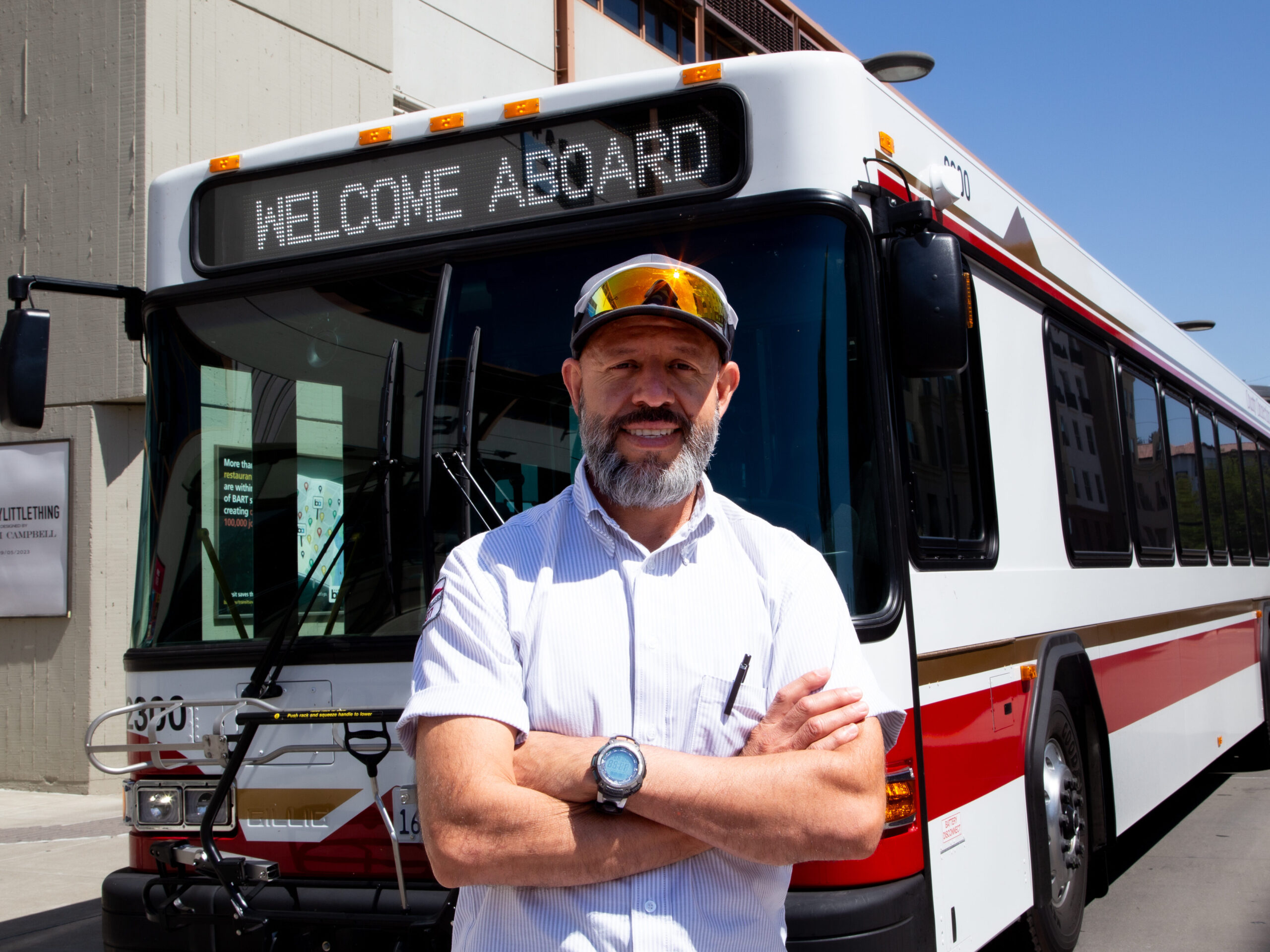
The Federal Advocacy Program is a set of initiatives and proposed funding championed by County Connection, in step with the values and goals of providing equitable and accessible public transportation for all. Each year, leadership from County Connection and regional elected officials travel to Washington D.C. to advocate for the needs of our agency and the financial support needed to carry out operations within Central Contra Costa County. All planning is reviewed by our Board of Directors.
For 2024, we have prioritized the following points:
- Infrastructure Investment and Jobs Act Reauthorization
County Connection relies on vital federal funds to support essential programs such as conversion to a Zero Emission Vehicles (ZEV) fleet, ADA paratransit and lifeline services. A fully funded appropriation of the IIJA is imperative to keep these programs moving forward and functioning. Additionally, the Authority strongly supports the re-authorization of the IIJA to ensure a strong funding platform supporting public transit into the future. - Enact APTA’s Recommendations on Mobility & Innovation
The American Public Transportation Association (APTA) have adopted a set of recommendations for federal enactment to promote and support innovative mobility solutions to increase the ability of all sorts of people to use public transportation throughout their everyday lives. These innovations in mobility must serve to improve and enhance traditional public transportation, not replace it. These innovations should also promote and provide opportunities to prepare the next generation of public transportation workers through work force development programs.
Many areas such as the one County Connection serves need to greatly improve their public transportation options to attack the housing crisis, climate change, equity, and aging population. However, historical growth patterns in these areas make traditional public challenging to provide. Thus, innovative mobility solutions are needed. They will also make established transit in these areas more effective and increase ridership.
Public transit agencies like County Connection are well positioned to deliver these innovative solutions along with their traditional fixed route services in an integrated and coordinated manner, if allowed to and supported by federal policy. - Restore the Federal Highway & Mass Transit Fund
With the Federal Highway and Mass Transit Accounts nearly broke, more and more of the federal transit program is at risk of not being funded. We urge that a permanent fix to this problem be found. Without financial stabilization for these accounts, many County Connection projects will be at risk. - Directed Spending Request(s) from CCTA
County Connection is committed to converting the existing fleet of diesel buses to Zero Emission Vehicles (ZEV’s) in compliance with the California ICT regulation. The Authority currently has a fleet of Battery Electric buses that must rely on the local electric utility to provide energy to charge the vehicles. In order to provide resilient essential electrical power to ensure County Connection can operate during natural disasters the Authority is seeking a community project grant to fund the installation of a Hydrogen Fuel Cell Generator. This will allow the Authority the ability to continue to operate battery electric buses in the event the local utility is incapable of providing power.
Planning for the future of public transit
SHORT-RANGE TRANSIT PLAN FY23-28
The Short-Range Transit Plan (SRTP) is County Connection’s operations and financial planning document. In order to effectively execute planning and programming responsibilities, the Metropolitan Transportation Commission (MTC) requires each transit operator receiving federal funding through the Regional Transportation Improvement Program (TIP) to prepare, adopt, and submit an SRTP to MTC every four years in order to remain eligible to receive federal funding.
ZERO EMISSION BUS – COUNTY CONNECTION 2022 ICT ROLLOUT PLAN
The California Air Resources Board’s (CARB) Innovative Clean Transit (ICT) rule requires all public transit agencies to gradually transition to a 100 percent zero‐emission bus (ZEB) fleet. Based on outcomes of the zero-emission fleet transition planning study completed by the Center for Transportation and the Environment (CTE), County Connection plans to transition its fleet to a mix of battery electric buses (BEB) and fuel cell electric buses (FCEB).
OPERATING AND CAPITAL BUDGET FY24
The FY 2024 Budget proposes $47 million in operations expenses for fixed route and paratransit with revenues to offset these costs. An additional $28 million is proposed in capital expenditures and associated revenue in the budget year.
ONE-SEAT REGIONAL RIDE PROGRAM
The One-Seat Regional Ride Program aims to streamline current regional ride practices by eliminating required transfers for trips that cross multiple transit service areas. With the new program, passengers can have one-seat for the entire duration of their trip. Participating in the service is Eastern Contra Costa Transit Authority, operators of Tri Delta Transit, Western Contra Costa Transit Authority, operators of WestCAT, and Livermore-Amador Valley Transit Authority, operators of Wheels Bus.
TITLE VI PROGRAM REPORT
As a federal grant recipient, County Connection is required to maintain and provide to the Federal Transit Administration (FTA) information on its compliance with the Title VI regulations. County Connection must perform a self-assessment every three years and to document that services and benefits are provided in a non-discriminatory manner.

